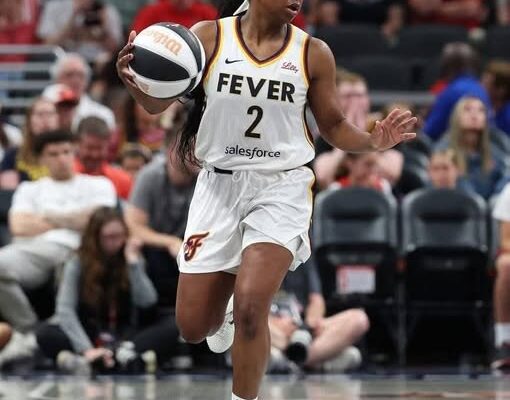Ari McDonald’s Journey: The Rollercoaster of WNBA Hustle
Ari McDonald had always dreamed of making it big in professional basketball. From her early days on the neighborhood courts, where the sun bore down relentlessly and the asphalt scraped her knees raw, to her college years when she poured every ounce of energy and dedication into her craft, basketball was more than a game—it was her life. After a standout collegiate career marked by grit, skill, and leadership, Ari set her sights on the WNBA, the pinnacle of women’s professional basketball.
When the Los Angeles Sparks signed Ari to their training camp roster, it felt like the culmination of years of sacrifice. She was ready to prove herself in one of the most competitive leagues in the world. However, the reality of the professional game was harsh and unyielding. Despite her tenacity and flashes of brilliance during the preseason, the Sparks ultimately cut her before the regular season began. It was a blow, a gut punch, but not a defeat.
The cut, while disappointing, was not unexpected. The WNBA, with only 12 teams and a maximum of 12 players per roster, offered limited opportunities. The talent pool was deep, and every spot was fiercely contested. But Ari knew the journey didn’t end there. In fact, in professional sports, a setback could often be a setup for something greater.
Just as the news of her release from the Sparks settled in, Ari received an unexpected call from the Indiana Fever. The Fever were grappling with an unforeseen shortage of players due to injuries and other circumstances. Key players Clark and Sophie were sidelined, and the team needed immediate reinforcements. The WNBA has a provision called the “10-day hardship contract,” allowing teams facing extraordinary roster shortages to sign players temporarily to maintain competitive balance.
For Ari, this was more than just a short-term gig—it was a lifeline. She signed the 10-day hardship contract with the Fever, stepping onto the court wearing a new jersey, ready to prove her worth once again. The contract was inherently unstable, an ephemeral thread that could be cut at any moment, but it gave her a chance to showcase her skills, to show coaches, teammates, and fans what she could do when given the opportunity.
However, the WNBA’s roster rules are strict and complicated. The league’s structure, designed to maintain parity and financial sustainability, sometimes forces teams into difficult decisions. After Clark and Sophie began their recovery or returned to play, the Fever faced the challenge of adhering to league roster limits. Despite Ari’s efforts and contributions during her hardship stint, the Fever were forced to waive her to comply with these regulations.
It was a bitter pill to swallow. Ari had hoped that her performances during those brief 10 days would be enough to earn her a longer stay, perhaps even a permanent roster spot. Instead, league rules—rules she had no control over—dictated her fate. It highlighted one of the less glamorous realities of professional sports: talent and effort don’t always guarantee security.
Despite the setback, Ari’s hard work did not go unnoticed. Across the league, scouts and coaches took note of her hustle, basketball IQ, and leadership qualities. Several teams expressed interest in signing her. The whispers turned into calls, and the calls into offers. Yet Ari found herself in a unique position: she was waiting on the Fever to call back.
Why? Because she believed in the opportunity the Fever had presented. She had developed a rapport with the coaching staff and players, understood the team’s system, and felt that she could make a meaningful contribution if given the chance. Moreover, the Fever had offered her the initial foot in the door, and Ari wanted to see if that door would open wider before stepping through another.
Her patience reflected a calculated gamble—a bet on herself and the potential the Fever franchise seemed to represent. But in the fast-moving world of the WNBA, patience can be both a virtue and a risk.
The journey Ari was on was emotionally taxing. Being cut and signed repeatedly, facing the uncertainty of short-term contracts, and navigating the merciless business side of professional sports can wear down even the strongest athletes. Every day brought a whirlwind of hope, anxiety, and determination.
She found herself constantly asking: Was she doing enough? Did coaches see her potential? Was she fighting the right fight?
Yet through it all, Ari’s love for the game never wavered. She leaned on the support of family, friends, and mentors who reminded her that resilience was key. She maintained her training regimen, stayed ready for any call, and sought ways to improve—whether by studying game film, refining her shooting mechanics, or building strength and conditioning.
Ari McDonald’s story isn’t unique in professional sports, but it is deeply human. It’s about the narrow margins between success and disappointment, about the determination it takes to keep pushing forward when the odds are stacked against you.
If the Fever call back, it will be validation—not just of her talent, but of her persistence and character. If they don’t, Ari will keep moving forward, ready for the next opportunity, the next challenge.
In the WNBA, as in life, sometimes the hardest battles forge the strongest warriors



